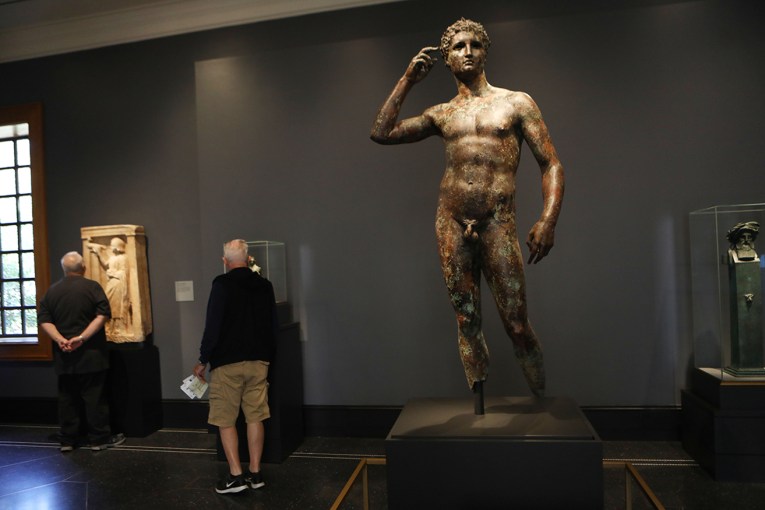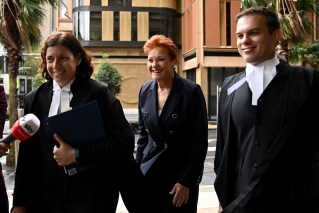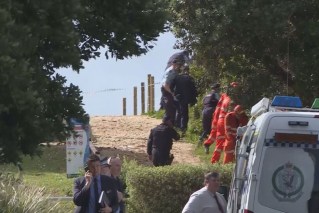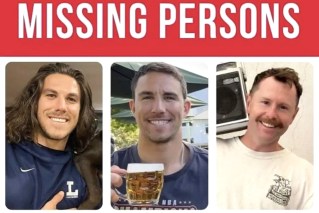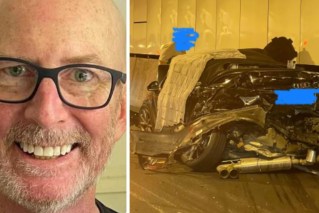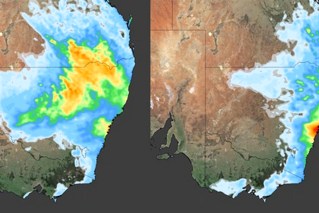NT sailor thanks AMSA emergency crew for saving his life after eight-hour ordeal

Nigel Fox was able to thank the Australian Maritime Safety Authority crew who helped save his life. Photo: ABC Far North/ Brendan Mounter
A man who, together with his pet cat, survived an eight-hour ordeal at sea has thanked his rescuers and urged other sailors to ensure they have a Personal Locator Beacon (PLB) in the event of emergency.
Darwin solo sailor Nigel Fox was bound for the east coast of Queensland when his yacht was hit by an electrical storm and strong winds in the Arafura Sea, near the Gove Peninsula, on January 4.
The 55-year-old says he will never forget the terror of being knocked overboard and left hanging from the yacht by a safety line with his head submerged.
“The jackline was just the perfect length to hang me over the stanchions,” he said.
“It was hanging me there, head and shoulders down, and I was on the lee-side of the yacht so it was just pushing my head constantly underwater – basically I was drowning.”
Mr Fox was able to reach for his hook knife to cut himself free before activating the PLB attached to his lifejacket.

Nigel Fox says he wouldn’t be alive without the Personal Locator Beacon, which he was able to activate when he was knocked from his yacht. Photo: ABC Far North/ Brendan Mounter
‘That little box saved me’
The device alerted the Australian Maritime Safety Authority (AMSA) which was able to pinpoint the distress signal coming 93 kilometres north-east of Nhulunbuy.
An air and sea rescue mission was launched and Mr Fox was eventually spotted by plane which dropped a life raft.
It was not until he saw the aircraft that Mr Fox knew for sure that the beacon was working, but at that point he was in no doubt that it saved his life.
“When I first saw the aeroplane I thought, ‘Hope,'” Mr Fox said.
“That’s when I knew the [PLB] was working. That little box of electronics, that’s what saved me.”
Nigel Fox has urged all boaties to carry a working and registered Personal Locator Beacon. Photo: ABC Far North/Brendan Mounter
Mr Fox met some of the AMSA crew involved with his rescue and was thrilled to be able to thank them in person and put faces to their names.
“To be able to shake their hands and say, ‘You were the person who spotted me’, ‘You were the person I was talking to on the radio’, it’s really good,” he said.
“And they’re part of a far larger network of people that saved my life.
“These are the guys at the sharp end, but let’s not forget all the people in the background … they pooled together [and] saved my life.
“Words can’t really quantify the happiness. They’ve given me a new lease on life.”
Specialist cameras locate Fox in ocean
Aircraft mission coordinator Olly Marin, who was aboard the aircraft which located Mr Fox, described the difficulty in finding him and dropping the life raft.

Olly Marin was aboard the aircraft which located Mr Fox. Photo: ABC Far North/ Brendan Mounter
“What actually picked him up was three cameras on the nose of the aircraft called BiDAR, which is actually a technology to automatically detect different colour and shape based on the background of the water,” he said.
“Thanks to Nigel’s bright lifejacket, the cameras automatically took a picture and gave his position, and then we set up to drop a life raft.
“Until he’s in that raft it’s pretty tense, and it was a big sigh of relief when he was finally in and we knew he was safe.”

Olly Marin says Mr Fox “saved his own life” by carrying emergency equipment aboard his yacht. Photo: ABC Far North/Brendan Mounter
Mr Marin and the other AMSA crew were grateful to meet the man they rescued and praised Mr Fox for carrying lifesaving equipment.
“It’s an awesome feeling, getting to actually meet him and shake his hand,” he said.
“He’s the one that saved his own life that day, we’re just the result of the actions that he took.
“We’re grateful he’s here, that he can pass on his story and educate people.”
Being prepared and staying positive
In addition to ensuring sailors carry a registered distress beacon, Mr Fox says all boaties should make sure all their safety equipment is tested and working.
“You go into the water prepared or you become a statistic,” he said.
Another key survival tip he learnt from his ordeal was to not lose hope.
“You have to stay positive,” he said.
“If you’re not, you start going downhill.
“You’ve got to keep on top of it when you’re out there because otherwise you’ll just freak out and die.”
Mr Fox’s cat Stinky was also aboard the yacht when the storm hit and was rescued when the boat was recovered more than a day later.

Stinky the cat is Nigel Fox’s long-time sailing companion. Photo: ABC/Nigel Fox
“She was cranky, hungry, thirsty,” he said.
“She’d been on the boat for about 30 hours on her own and she’d done at least 130 nautical miles.”
Despite his ordeal, Mr Fox is looking forward to returning to the water with his long-time sailing companion Stinky.
